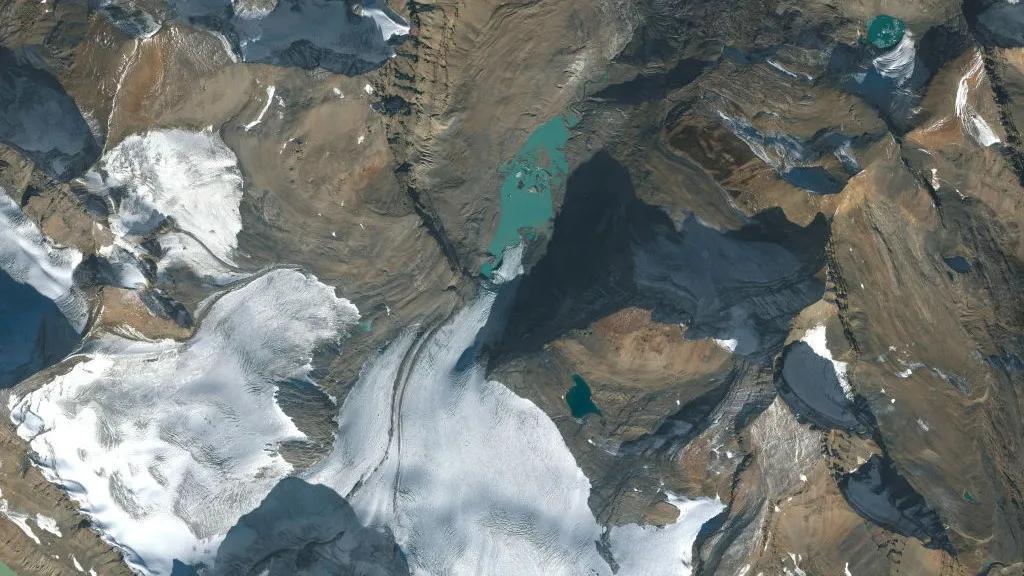
North America & Europe’s Glaciers Lost Unprecedented Ice in 4 Years: Study
In a worrying sign of the devastating impact of climate change, a recent study has revealed that glaciers in North America and Europe have lost a staggering amount of ice over the past four years. The research, published in the journal Geochemistry, Geophysics, Geosystems, found that glaciers in Washington, Montana, British Columbia, Alberta, and the Swiss Alps lost “unprecedented” ice between 2021 and 2024, with some areas experiencing losses twice as high as those recorded between 2010 and 2020.
The study, which analyzed data from 2021 to 2024, found that the glaciers in the United States and Canada lost an average of 24.5 billion tons of ice per year, while those in the Swiss Alps lost around 1.7 billion tons annually. Overall, the glaciers shrank by up to 13% over the four-year period, a rate of loss that is unprecedented in recent history.
The research, led by scientists from the University of Colorado Boulder, is a stark reminder of the urgent need to take action to address the climate crisis. Glaciers are important indicators of climate change, as they are sensitive to changes in temperature and can reflect global warming trends.
The study’s findings are based on a combination of satellite imagery and ground-based measurements, which were used to track the mass loss of glaciers in the selected regions. The researchers found that the rate of ice loss was particularly high in areas with historically stable glaciers, such as those in the Swiss Alps.
One of the most striking aspects of the study is the sheer scale of the ice loss. For example, the glaciers in Washington state’s Glacier Peak Wilderness lost an average of 34 billion tons of ice per year between 2021 and 2024, while those in Montana’s Glacier National Park lost an average of 27 billion tons annually.
The study’s lead author, Dr. Garry Clarke, a glaciologist at the University of Colorado Boulder, emphasized the significance of the findings. “These losses are unprecedented and underscore the urgent need for action to mitigate the impacts of climate change,” he said. “Glaciers are important indicators of climate change, and their rapid loss is a warning sign of the devastating consequences of inaction.”
The study’s results have important implications for the environment, ecosystems, and human societies. Glaciers play a critical role in regulating global sea levels, and their loss can have significant impacts on coastal communities and ecosystems. They also provide important sources of freshwater, and their loss can have significant impacts on agriculture and industry.
The study’s findings are also consistent with other recent research on the rapid decline of glaciers around the world. For example, a study published in the journal Science in 2020 found that glaciers in the Andes mountain range were losing mass at a rate of around 10% per decade, while another study published in the journal Nature in 2022 found that glaciers in the Himalayas were losing mass at a rate of around 15% per decade.
In the face of these alarming findings, it is clear that urgent action is needed to address the climate crisis. Governments, businesses, and individuals must work together to reduce greenhouse gas emissions, transition to renewable energy sources, and protect vulnerable ecosystems.
The study’s findings are a powerful reminder of the importance of taking action to address the climate crisis. As the world continues to grapple with the consequences of climate change, it is essential that we prioritize the protection of glaciers and other vulnerable ecosystems.
Source:
https://agupubs.onlinelibrary.wiley.com/doi/10.1029/2025GL115235






